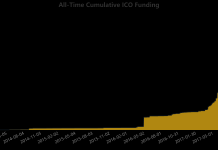The IMF proposed including cryptocurrencies in Pakistan’s tax net, a strange recommendation compared to El Salvador. From the IMF’s point of view, Pakistan is being urged to modernize its tax system, even if it has to work with cryptocurrencies. Meanwhile, El Salvador, which has a relatively better economic position, has been advised to “abandon all its plans with Bitcoin and cryptocurrencies due to their high volatility.”
The International Monetary Fund (IMF) has proposed measures to update the tax system in Pakistan, and one of the most prominent suggestions is the inclusion of cryptocurrencies in the tax net.
This means that profits derived from cryptocurrency transactions would be subject to taxes, like any other type of investment.
The IMF Insists on Taxing Cryptocurrencies
In addition to including cryptocurrencies in the tax burden, the IMF recommends reviewing taxes on real estate and listed securities to ensure that all profits are properly taxed. This regardless of how long the assets are held.
Another important point is that the IMF is pushing for property developers to be required to report all property transfers before their final registration. This would include not only physical properties, but also records of the purchase and sale of plots in housing projects.
These IMF recommendations could have a significant impact on Pakistan’s upcoming budget. More traditional views say the measures could even be part of a broader rescue package.
Under the IMF’s point of view, Pakistan is being urged to modernize its tax system. This to “adapt to new financial assets, such as cryptocurrencies, and guarantee fairer and more effective taxation in the country.”
IMF parallels with El Salvador Case
While Pakistan receives recommendations from the IMF to integrate cryptocurrencies into its economic and fiscal system, El Salvador, on the other hand, has been “advised” by the same international organization to abandon its plans related to Bitcoin and other cryptocurrencies.
This divergence of advice highlights a paradoxical aspect in the economic policies recommended by the IMF for different countries. Even when it comes to the same topic of cryptocurrencies.
In other words; To Pakistan, the IMF recommends taxing cryptocurrencies (almost integrating them into the economic system) while to El Salvador, which has a relatively better economic position, it has recommended that it “abandon all its plans with Bitcoin and cryptocurrencies due to their high volatility.” This suggests a possible conflict of interest with the Central American country.
Implementation in the Next Budget
The IMF emphasized the need to review tax slabs on real estate and listed securities, urging Pakistan to tax capital gains on these assets regardless of the duration of ownership. This suggests a shift toward more uniform taxation of capital income, eliminating provisions that exempt gains based on holding periods.
Another important proposal involves imposing obligations on real estate developers to trace and report all transfers of real estate interests before the finalization and registration of property titles. Failure to comply with these obligations may result in penalties and promoters will have secondary liability for unpaid taxes.
These recommendations are expected to be part of the fiscal year 2024-25 budget through the finance bill. If integrated, they could potentially improve Pakistan’s revenue collection efforts and align its fiscals with international standards, as advocated by the IMF.
Furthermore, these measures could be incorporated into the Expanded Facility Fund (EFS) bailout package, reflecting the IMF’s commitment to supporting Pakistan’s economic reforms. However, it remains to be seen how these recommendations will be received by the Pakistani authorities and public.
By Audy Castaneda











